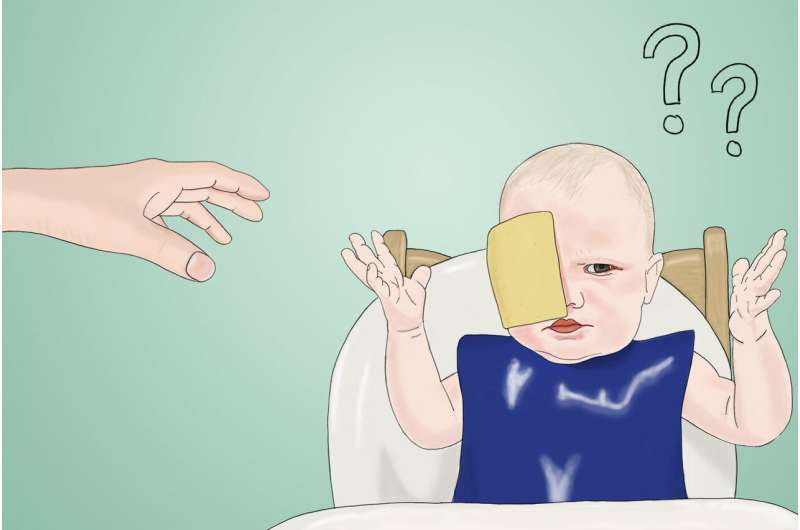How does the cheese challenge on Twitter, Instagram, and Facebook affect a baby's developing brain?

If I were to throw a slice of cheese at your face, dear reader, it would be weird for you. You might say, "Hey. Why did you throw that slice of cheese at my face? That was out of the ordinary."
But if you were a baby, you wouldn't know if it were ordinary or not, to have a slice of cheese stuck to your face. You'd just know you suddenly felt something cool on your face.
We know how babies react outwardly to having cheese thrown at their faces because a handful of babies have become spectacular—if unwitting—social media stars, thanks to a viral video campaign called the "cheese challenge."
The highlight of my day was watching this video of someone throwing a slice of cheese on their baby.... what's wrong with me and why am I still laughing? pic.twitter.com/ZHUB421SG2
— madi (@Madison_Combs1) March 1, 2019
People all over the world are throwing slices of American cheese (which are pretty sticky, it turns out) at their unsuspecting babies, filming the babies' reactions, and posting the videos online.
Some babies laugh, some cry, and some are so stunned they stop moving altogether. The babies' reactions, says Heather Brenhouse, who is an associate professor of psychology at Northeastern, "are less about what just happened and more about the sensations they're currently feeling: a cool, smooth, piece of cheese on their face."
That's because babies' brains are still developing. Their subcortical regions develop first, which means that babies can only respond to the world from a visceral and need-based perspective, says Brenhouse, who studies developmental neuroscience and psychology.
The higher-order cortical regions of their brains—the parts that make sense of the world around them in relation to past experience—haven't developed yet, she says.
This means that when a slice of cheese is lobbed at their faces, they're not sure if it's a normal or abnormal thing. They might react with surprise but won't have any context to know whether or not this is a normal event, Brenhouse says.
"Every experience is a brand-new experience for a baby," she says. "Those experiences are driving how their brains develop. In these cases, the babies have no reason to believe that this is good, bad, strange, or commonplace. They are learning with each experience."
What's clear in almost every video is that these babies are unsure about what to do.
"There are very few things we're born to expect," Brenhouse says. Our guardians teach us what to expect by showing us. And, in the case of the cheese challenge, their presence creates a sort of "buffer" to diffuse what might otherwise be a stressful experience, Brenhouse says.
So, as a baby, when your parent tosses a slice of cheese your way, an experience that might otherwise be uncomfortable is suddenly less so: These are the people taking care of me, so this must be fine, your baby brain determines.
And, Brenhouse says, it is fine.
"Just having something touching your face? I'm not sure that's traumatizing."

















